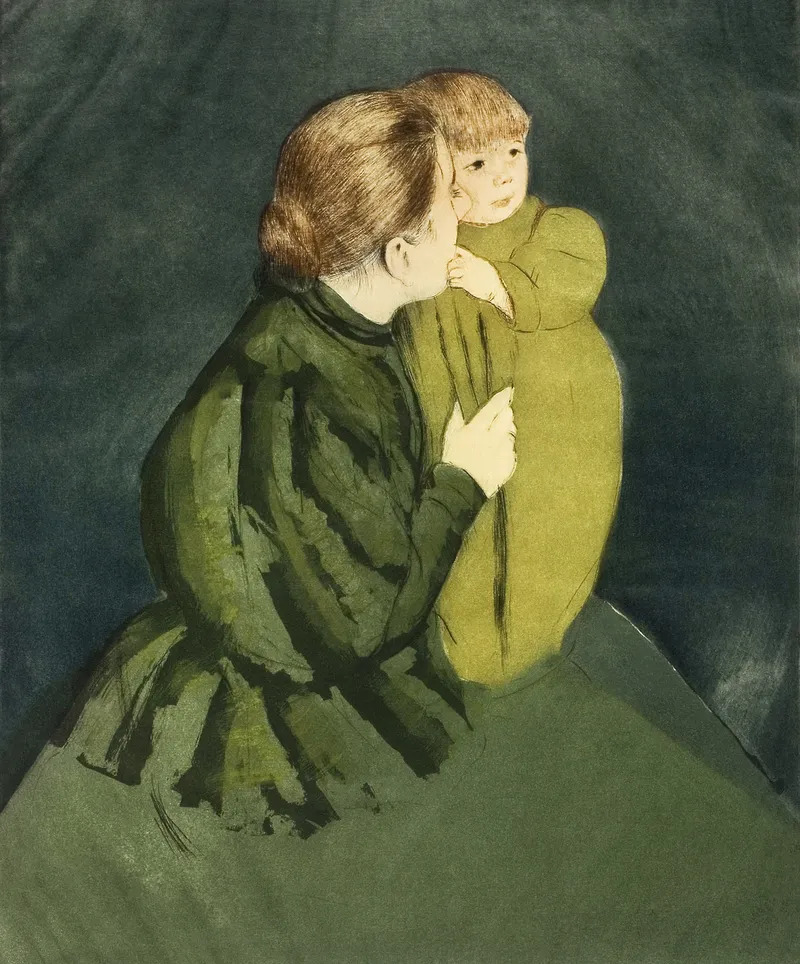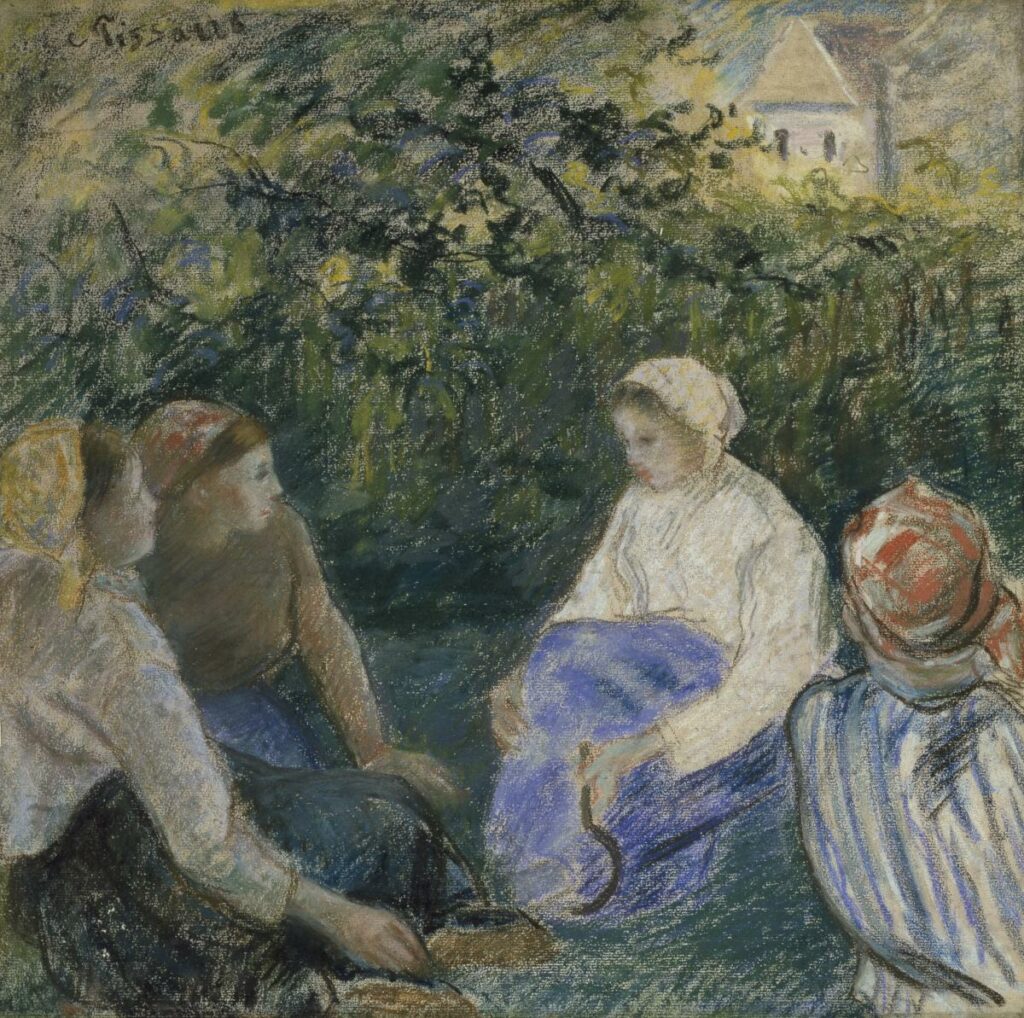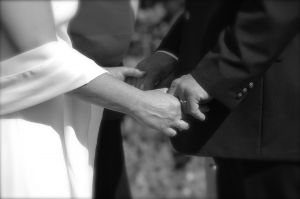Pittsburgh, PA.
I. False Dreams
Modernity has produced a chaos of definitions. We may spot its presence in bananas duct-taped to walls, or brutalist churches, or the inability to recognize a baby in the womb as a person.
Another signifier is the slippage from grandmothers’ proverbs to advertising slogans. It is easy to forget we spend more time looking at billboards and hearing movie lines than the lone voice of a great-grandmother, and the idioms which run in our heads these days are no longer timeless wisdom but the product of slogan sellers. Among the many thoughtless words of the cult of positive consumerism one in particular stands out: “You can be anything you wanna be.”
Great grief has come to haunt the American mind after hearing those words a thousand times. They are purely sentimental, intended to make the speaker feel good rather than impart any understanding of reality. The pain of this loss of a consciousness of cause-and-effect stalks our landscape and clouds our vision. It is a multi-generational confusion, and it rippled through the land yet again when millions heard Roe v. Wade had been overturned and took to social media to lament the enslavement of the female body.
In this post-liberal hour, we teeter on a razor’s edge between truth and nihilism. The classical liberalism which birthed the technocratic state that birthed Roe is dead; now Roe is too. Dobbs v. Jackson Women’s Health Organization is an exit sign from the technocratic interregnum into the post-liberal era, and the contemporary left is as post-liberal as anyone else. The question is: what form of post-liberalism will take hold?
II. The Decisions
If the millions pained by the Dobbs decision were to read it, they may be surprised by what the decision actually contains.
From the decision:
Our opinion is not based on any view about if and when prenatal life is entitled to any of the rights enjoyed after birth. The dissent, by contrast, would impose on the people a particular theory about when the rights of personhood begin. According to the dissent, the Constitution requires the States to regard a fetus as lacking even the most basic human right—to live—at least until an arbitrary point in a pregnancy has passed. Nothing in the Constitution or in our Nation’s legal traditions authorizes the Court to adopt that “‘theory of life.’”
This is a renewal of the legislative Republic which Roe attempted to dismantle 50 years ago.
In Roe v. Wade, Justice Blackmun wrote:
One’s philosophy, one’s experiences, one’s exposure to the raw edges of human existence, one’s religious training, one’s attitudes toward life and family and their values, and the moral standards one establishes and seeks to observe, are all likely to influence and to color one’s thinking and conclusions about abortion.
The technocratic-liberal order of the 1970s had to acknowledge the reality of enormous differences of thought on abortion (in the early ‘70s abortion was only legal in 6 states and Washington D.C.) – and then proceeded to seize the people’s and legislators’ right to work out these issues, replacing it with judicial social engineering. What some saw as a new right of women was predicated on the violation of the decision-making process and self-understanding of the community.
The naked power grab has resulted in confused thinking and combative discourse. The only agreed-upon fact is that there are widespread disagreements on metaphysical views of the body. But rather than our laws reflecting these disagreements, they were stifled by a technocratic jurisprudence preference for a one-size-fits-all style of rule in what is supposed to be a democratic republic.
This standardization of morality has resulted in the imposition of one of the most extreme pro-abortion regimes in the world for 50 years. US policy has exceeded all the limits placed upon abortion in what is usually considered secular Europe.
So how could a few judges justify stripping the power of the people in a country as large and varied as the US of the ability to craft their own legislation on an issue of such community importance?
The classical liberal state prioritized the freedom of the individual over the freedom of communities. The separation of these goods left a vacuum of power and a refusal to articulate community goods. In the ensuing social breakdown, institutions and corporations filled the void with their own consolidation of power, free of any necessity to offer themselves to a fragmented public as servants of any communal good.
With ends removed from discussion of common life, the means were all that remained. Legislators became servants of centralized power, and this new class of technocrats pursued a social atomism so radical that community life and mental health across the nation are now in shambles.
The reasoning Roe uses to dismantle the legislative process could dismantle all local governments. Who are any mere citizens, with our thinking “colored” by exposure to the “raw edges” of life, to make decisions about who is a person? Who are they to profess and act upon eternal truths?
The wildness of Roe and the consolidated technocratic order broke down the pretense that this is a land governed by the people. But Dobbs takes place in a shifting landscape. The post-1968 consensus has led to a fork in the road, and most of the powers that be urge a Great Reset. It has never been clearer that technocratic pretensions to neutrality have left the majority without any say in their own governance.
Dobbs offers a crack in the ceiling of this technocratic hegemony and makes possible a renewal of self-determination as community-based work. It also offers a chance for people who dream of a world after liberalism, of a world based less on fear than on love, an opportunity to meet the alienated with a renewed vision.
III. Two Visions
Foundational to the divergence in Roe and Dobbs, and the societies they propose to shape, is the role of law. Classical liberalism understood natural law to be the way a community understood reality. Over the centuries, though, natural law has been replaced by a nominalist interpretation of reality. This viewpoint pushes social libertarianism and administrative hegemony because it has no other toolset to navigate reality and adjudicate disagreements.
Nominalist law is rooted in a rejection of constraints and of realities behind words, including biological realities. Because of this it must by necessity be far more totalitarian than natural law can ever be, and this is what it has become in the hands of would-be social engineers.
The refusal to recognize shared bonds of meaning has allowed incorporated entities to capture the means of governance and steer the ship in favor of libertarian social policies which dissolve communal meaning. These institutions then step into the chaos and buy up all the rights on sale. There are those who spend these troubled days scouring the horizon for a Caesar: look no further than the corporation which promises to help women travel to procure an abortion.
Nominalism had to become the modus operandi in legal minds when it was clear that a terrible contradiction was evident in abortion rights. Rights-based liberalism made abortion seem necessary for women’s liberation; when it was clear the infant in the womb is a human being, not a jellyfish, then the next move was to blur the definition of a person. Nominalism can be used even in science to make the known unknown. The disastrous effects are evident as a new generation of justices can no longer define a woman. Once the infant was de-personed we were all doomed to the same fate.
That is the nominalist state offered to us by the technocratic vision of post-liberalism. We will be managed and re-defined into nothingness. Carbon footprints, useless eaters, breeding machines. With no ability to tether our communities to truth, we can all be defined away when it is convenient for the powerful.
An alternative vision building off Dobbs would once again recognize natural law. Natural law relies upon reciprocity with reality, admitting there is a world outside the Mind. There will always be messiness in interpreting natural law, but it must necessarily be less than the “might-makes-right” stance of our nominalist law machine. Its willingness to accept cause-and-effect is not the stuff of oppression but an opportunity for greater fellowship. It is the potential pole star which can unite people in love of truth.
Classical liberalism was the philosophy for a culture increasingly abstracted away from context. It is not necessary for us to lament every aspect of liberalism, and it facilitated incredible leaps forward in connectivity and data-gathering. It is, however, incumbent upon us to recognize this can only ever be a philosophy of means, not ends, and nature abhors a vacuum of meaning. Liberalism excluded questions of ultimate ends and human fulfillment, determined to eschew the responsibilities of freedom. It has refused to allow free will to be hallowed, preferring academic (and thus ultimately corporate) categories of being. The scholastics ended in nominalism, and so have we.
The fully nominalist society will have contempt for individual rights, will turn negatives into positives so liberty is genuinely curtailed. It will reject natural law and give power in the ensuing chaos to institutions more authoritarian than any monarchy could have been 400 years ago. A people free of natural law, but also free of privacy, of meaning, and dependent for protection upon institutions.
The Dobbs decision opens the door to a future where we may be motivated less from fear of our neighbor than the hope of living in harmony. This society may move away from distant bureaucracies as sole arbiters of meaning. It would recognize shared interests between families, businesses, environments, individuals, and churches. It would see natural law rather than bottom lines as the arbiter of the good. Dobbs provides the groundwork for liberalism after liberalism: for the bonds between us to also be protected from tyranny.
Natural law was usurped in 1973 and has been defied ever since by an anti-democratic project of social engineering. But a democratic republic need not be in perpetual war against truth. We can once again conceive of authority as something objective, reached by a people motivated by love, not fear. Then those states and communities which decide to protect life at all ages will have the opportunity to invite others to say the ancient words: “See how they love one another.”
IV. Love in the Time of Post-Liberalism
Modern liberalism has facilitated the formation of monopolies in almost every field of human endeavor. Because it has been rooted in the fear fomented during the 17th century, it centered a fear of neighbor, a fear of community, a fear of faith, a fear of responsibility at its core. With decreasing connections to the most precious things in most people’s lives, it instead found its lifeblood in the lowest common denominator of values: trade.
By restoring the hard work of democracy and legislating to communities, we move to what should be the dream of post-liberalism: not a society remembering fear of their intolerant neighbor but a society “leaning in” to discourse. A society learning to talk and study with one another, not outsourcing that job to the would-be managers of utopia.
Dialogue in the social media age doesn’t exist, only a parody of it. We have platforms, not discussions. There are millions of women living in fear and rage. Millions of women who have been hurt. These primal screams of rage are shocking, but, for followers of Christ, we should remember these are people in true pain.
Abortion is the triumph of fear. Fear leads to every kind of sin. And fear builds technocracy to insult us from risk. Abortion sought to remove the other, who causes fear. Pregnancy resource centers were a beautiful way to support women with an alternative vision. Now, with Dobbs, we have an opportunity to renew this witness to love over fear. However misguided, there are millions who have been told by utopians that Dobbs is an existential threat that will sacrifice them to the feared other. They are afraid, and they are in pain.
In the spirit of Dobbs, brave individuals rooted in love of Christ could consider what it would mean to engage in the lost art of conversation. To hold forums where they do seek not to argue but to witness. Rooted truly in a belief that abortion is the ending of a human life and the triumph of fear, they could meet the sufferers with the loving silence displayed by Christ before Pontius Pilate. They could offer to hold their hands when they wept. And when all the tears were spent, they could work to build a path to a society not of a million little fences extending even to the womb, but one which centers the vulnerable and teaches them not to be afraid.
We are dominated by institutions that laugh at the idea that little exchanges could change the world, but they have also become eager censors of speech deemed unacceptable. Perhaps, then, there remains real power in telling the truth in love. Perhaps just a few conversations here or there could bring about a renewed respect for natural law. For 50 years we saw abortion defenders move from “safe, legal, and rare” to “shout your abortion.” The next 50 years are an invitation to depart from the sanctimonious technocracy of elites to a conversation which joins neighbors in love. This was how the Church once started, and it is to this model we should consider returning.
There will be a temptation for many to say: “Good. Roe is gone. Now the rest is none of my business.” It would be wise to remember this disinterest in our communities is what enabled a technocratic judiciary to impose Roe. To perfect our nation and its communities, we must balance the needs of living amongst one another with caring for one another.
Harmony can be wrought from our long separateness. The woman and baby should be welcomed into community life; new fathers should be offered mentorship and guidance; grandparents perhaps supported as caregivers; and unhappy abortion activists invited to sit down and break bread. It is this which will bond the free will of the individual with the development of the community, which may hallow liberalism into something new, so that once again others may say: “See how they love one another.”
Image Credit: Berthe Morisot, “Boats under Construction” (1874)















Excellent! article, Tara. Thanks !!
***There will be a temptation for many to say: “Good. Roe is gone. Now the rest is none of my business.” It would be wise to remember this disinterest in our communities is what enabled a technocratic judiciary to impose Roe. To perfect our nation and its communities, we must balance the needs of living amongst one another with caring for one another.***
Well said, but you might have the direction backwards, Tara. SCOTUS was activist but it only became technocratic when trying to reason Roe v Wade in terms of medical science rather than morality and law: “when does a human embryo become viable?” rather than “when does human life begin?”
Even arch-feminist Ruth Bader Ginsburg, said in a speech to U Chicago law school that it was a mistake/over-reach, because state legislatures are the correct arena for debating the legalization of abortion and under what conditions. This fits the Constitution better, and is now the result of this year’s SCOTUS case.
https://www.law.uchicago.edu/news/justice-ruth-bader-ginsburg-offers-critique-roe-v-wade-during-law-school-visit
Thank you Tara, for the clear analysis of Natural Law and its (at least) fifty-year erosion by nominalism, and for issuing the challenge: “See how they love one another”! As insurmountable as Roe once seemed, that is the greater effort.
Comments are closed.